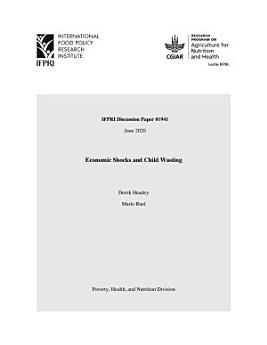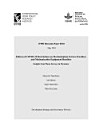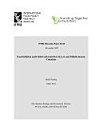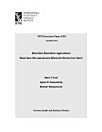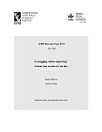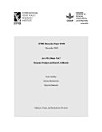Economic shocks and child wasting
Headey, Derek D. · Ruel, Marie T.
IFPRI Discussion Paper Knjiga 1 · Intl Food Policy Res Inst
E-knjiga
37
str.
family_home
Ispunjava uvjete
info
reportOcjene i recenzije nisu potvrđene Saznajte više
O ovoj e-knjizi
In developing countries macroeconomic volatility is common, and severe negative economic shocks can substantially increase poverty and food insecurity. Less well understood are the implications of these contractions for child acute malnutrition (wasting), a major risk factor for under-5 mortality. This study explores the nutritional impacts of growth shocks over 1990-2018 by linking wasting outcomes collected for 1.256 million children from 52 countries to lagged annual changes in national income. Difference-in-difference estimates suggest that a 10% annual decline in national income increases moderate/severe (WHZ<-2) and severe wasting (WHZ<-3) by 14 and 22 percent. An exploration of possible mechanisms suggests negative economic shocks increase risks of diarrhea, fever, and maternal underweight prevalence, and reduce child dietary diversity. Applying these results to the predicted economic impacts of COVID-19 suggests that millions of pre-school children are at increased risk of wasting and wasting-related morbidity and mortality unless urgent preventative action is taken.
Ocijenite ovu e-knjigu
Recite nam što mislite.
Informacije o čitanju
Pametni telefoni i tableti
Instalirajte aplikaciju Google Play knjige za Android i iPad/iPhone. Automatski se sinkronizira s vašim računom i omogućuje vam da čitate online ili offline gdje god bili.
Prijenosna i stolna računala
Audioknjige kupljene na Google Playu možete slušati pomoću web-preglednika na računalu.
Elektronički čitači i ostali uređaji
Za čitanje na uređajima s elektroničkom tintom, kao što su Kobo e-čitači, trebate preuzeti datoteku i prenijeti je na svoj uređaj. Slijedite detaljne upute u centru za pomoć za prijenos datoteka na podržane e-čitače.
